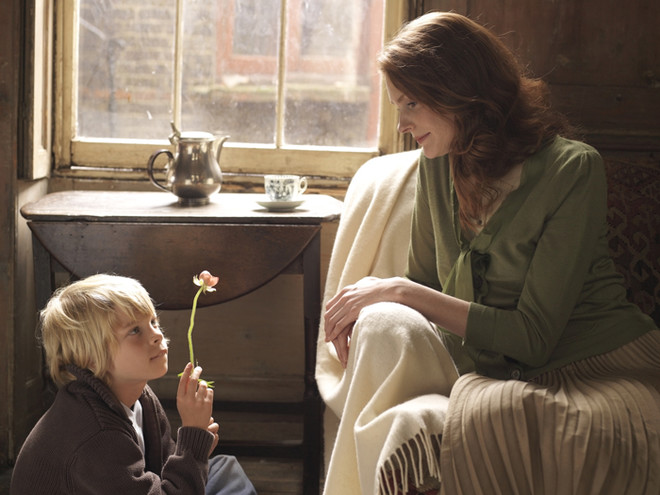Natalia Shevtsova, practicing psychologist
— There may be several reasons for children’s apathy.One of them is overload: too intensive school schedule, many clubs and sections, and if parents also load you with household chores, then there is no time to be alone with yourself! But a child is able to understand what is interesting to do only in a state of boredom, when no one is imposing anything from the outside. The second reason is when parents drag their child with them everywhere and everywhere, without even bothering to ask whether he likes such leisure or not. So the child is used to having everything decided for him, hence the indifference. What's the point of wanting something if they will still drag you where they want? The third reason is an identity crisis. This is the period when a teenager wonders who he is in this world and where he should go next. Usually it matures by the age of 17, but can arise earlier depending on individual characteristics. In this case, you just need to be patient and treat it with understanding and respect, that is, give the opportunity and time for a thoughtful decision. But whatever the reason, the problem needs to be solved. And the first thing a parent can do is talk to their child heart to heart, without reproaches, judgments and kicks. A person in adolescence needs parental support and love no less than a baby. Remember yourself at this age, what worried you and what you wanted during this period. Arrange an active weekend: go to the forest, go fishing or have a picnic in the nearest park - this will give a spirit of unity and shake off the touch of routine and tension. For those who have problems with verbal contact and a teenager flatly refuses to talk, a method such as film therapy can help. With the help of a psychologist or on your own, choose a suitable film and offer it to your son/daughter to watch or watch it together, and then discuss it in a friendly manner, share your impressions of what you saw, and ask what your child saw, what he/she thinks about it, what he/she liked the most and what he/she didn’t. Be sincere, don’t push and don’t try to impose your opinion. Here are some films that can help solve this problem: “Dead Poets Society”, “The Intern”, “The Devil Wears Prada”, “Legally Blonde”, “Legend No. 17”, “The Matrix”. First, watch the film yourself and decide whether it is suitable for your child or not, and then watch it together. If the problem is completely neglected and all your efforts have not yielded results, then contact a professional psychologist. Don’t ask your friends for advice and don’t compare your teenager with anyone else. Children are unique, and everyone has their own pace of development. Solve problems with professionals and remember that the roots of children's problems are always hidden in us. So help yourself first, and perhaps everything will work out automatically for your child.
Anastasia Kusmartseva, child psychologist
 A photo: Getty Images- Children who are not interested in anything, disinterested in anything, do not happen. It is not stipulated by the nature of such a phenomenon. From an early age, the child shows an interest in the world, in the knowledge of everything around him. And here the model of behavior of people surrounding him is very important. How do they react to its manifestations of independence, interest, what information is given by "see how interesting this world is" or "do not touch, put this world is dangerous". It is not a secret for anybody that a small child is very sensitive and sensitive to behavior surrounding people. For a child from birth to one year, mom is the first source of information about the world around us. And in the future the family is the first society where the child forms his own behavior model, which he then transfers to his whole life. Everyone is already born with their own interests in one direction or another, and the task of the parents is to see this direction and help them move along the given path, to help them reveal themselves in this area. Unfortunately, as a rule, we see a completely different pattern of behavior in the parents. Authoritarian type of education "I better know what you need!" And "Do as you say!" When the child's opinion is not taken into account at all. Often, they act out of good motives, but do not notice that they impose their model of happiness on their daughter or son, without giving them the choice and independence. Such behavior will occur to them in adolescence just what we are saying, indifference to everything or the inability to stop their attention on anything. So what to do with a teenager if he does not have any personal interests? - Start work on the bugs and first of all evaluate the quality of your communication with the child. From what position do you communicate: the positions "from above" constantly try to dominate, the positions "together" - communicate at the same social level, - assess what role the child has in the family, what responsibilities are assigned to him. How important is his opinion in solving certain family issues: how satisfied is his vital need for self-realization, how to realize himself in interesting areas (interesting to him, not to you), what your child does best, what pleases him. Computer games do not count. They are usually a way to escape, escape from a reality that does not accept it and in which it can not self-fulfill itself. If you yourself feel this in difficulty, you feel that you need help and a "fresh," outsider view of this your situation, a deeper analysis of it, you will always be able to help a child psychologist. We all want to grow up a personality from our child, therefore, we should treat him accordingly, and not as a slave who is obliged to obediently obey all your orders. Do not forget to praise!
A photo: Getty Images- Children who are not interested in anything, disinterested in anything, do not happen. It is not stipulated by the nature of such a phenomenon. From an early age, the child shows an interest in the world, in the knowledge of everything around him. And here the model of behavior of people surrounding him is very important. How do they react to its manifestations of independence, interest, what information is given by "see how interesting this world is" or "do not touch, put this world is dangerous". It is not a secret for anybody that a small child is very sensitive and sensitive to behavior surrounding people. For a child from birth to one year, mom is the first source of information about the world around us. And in the future the family is the first society where the child forms his own behavior model, which he then transfers to his whole life. Everyone is already born with their own interests in one direction or another, and the task of the parents is to see this direction and help them move along the given path, to help them reveal themselves in this area. Unfortunately, as a rule, we see a completely different pattern of behavior in the parents. Authoritarian type of education "I better know what you need!" And "Do as you say!" When the child's opinion is not taken into account at all. Often, they act out of good motives, but do not notice that they impose their model of happiness on their daughter or son, without giving them the choice and independence. Such behavior will occur to them in adolescence just what we are saying, indifference to everything or the inability to stop their attention on anything. So what to do with a teenager if he does not have any personal interests? - Start work on the bugs and first of all evaluate the quality of your communication with the child. From what position do you communicate: the positions "from above" constantly try to dominate, the positions "together" - communicate at the same social level, - assess what role the child has in the family, what responsibilities are assigned to him. How important is his opinion in solving certain family issues: how satisfied is his vital need for self-realization, how to realize himself in interesting areas (interesting to him, not to you), what your child does best, what pleases him. Computer games do not count. They are usually a way to escape, escape from a reality that does not accept it and in which it can not self-fulfill itself. If you yourself feel this in difficulty, you feel that you need help and a "fresh," outsider view of this your situation, a deeper analysis of it, you will always be able to help a child psychologist. We all want to grow up a personality from our child, therefore, we should treat him accordingly, and not as a slave who is obliged to obediently obey all your orders. Do not forget to praise!
Denis Razumovsky, teacher-psychologist, author of "Obedient parents of disobedient children"
— It all depends on age.This problem usually arises in parents of teenagers who were not taught independence in childhood, who were often simply left to their own devices or who had too much free time and did not learn how to manage it properly. In general, you should know that a child should not have free time. You teach him to fill all the hours and minutes with activities from three areas: clubs, studies and household chores. Is the child too young to properly manage his time during the day? Sit down, make a schedule and a to-do list with him and teach him to prioritize. Is this what you did with your child up to 10 years old? Then, most likely, you will avoid the problem that your teenager does not want to do anything. By the age of 12-15, he will already have favorite hobbies, and he will be able to manage his time. Does not want to do anything ... It is important to understand the difference here. Does he go to a club, but whines when he goes? Or does he not go anywhere at all, but only lies at home and watches TV or plays on the computer? In the first case, everything is not so bad, and your task is to support him and praise him for his successes. Just note that a teenager perceives praise better indirectly. Let's say you are talking to your mother or friend on the phone and telling them about your child's good results in something. Children hear everything, and praise stimulates the next step forward. Photo:Getty ImagesIf he doesn't want anything at all... Try applying the principle of contradiction. For example, he doesn't want to go to a concert with friends, and you offer him to wash the windows with you or do a general cleaning of the apartment: of two evils, he will choose the lesser and go to the concert. And remember, if you want something very much, then the child wants it less and less.
Photo:Getty ImagesIf he doesn't want anything at all... Try applying the principle of contradiction. For example, he doesn't want to go to a concert with friends, and you offer him to wash the windows with you or do a general cleaning of the apartment: of two evils, he will choose the lesser and go to the concert. And remember, if you want something very much, then the child wants it less and less.









